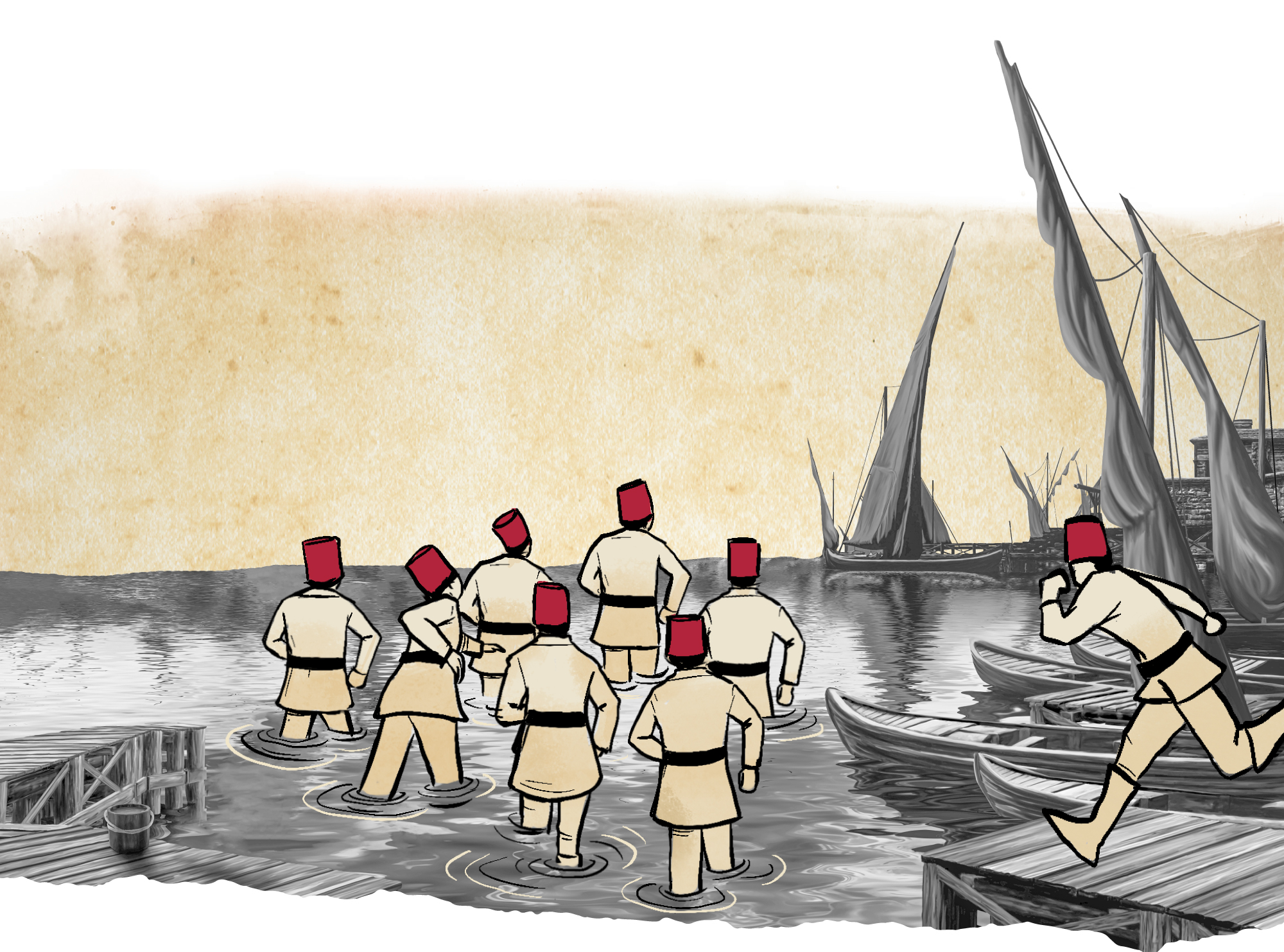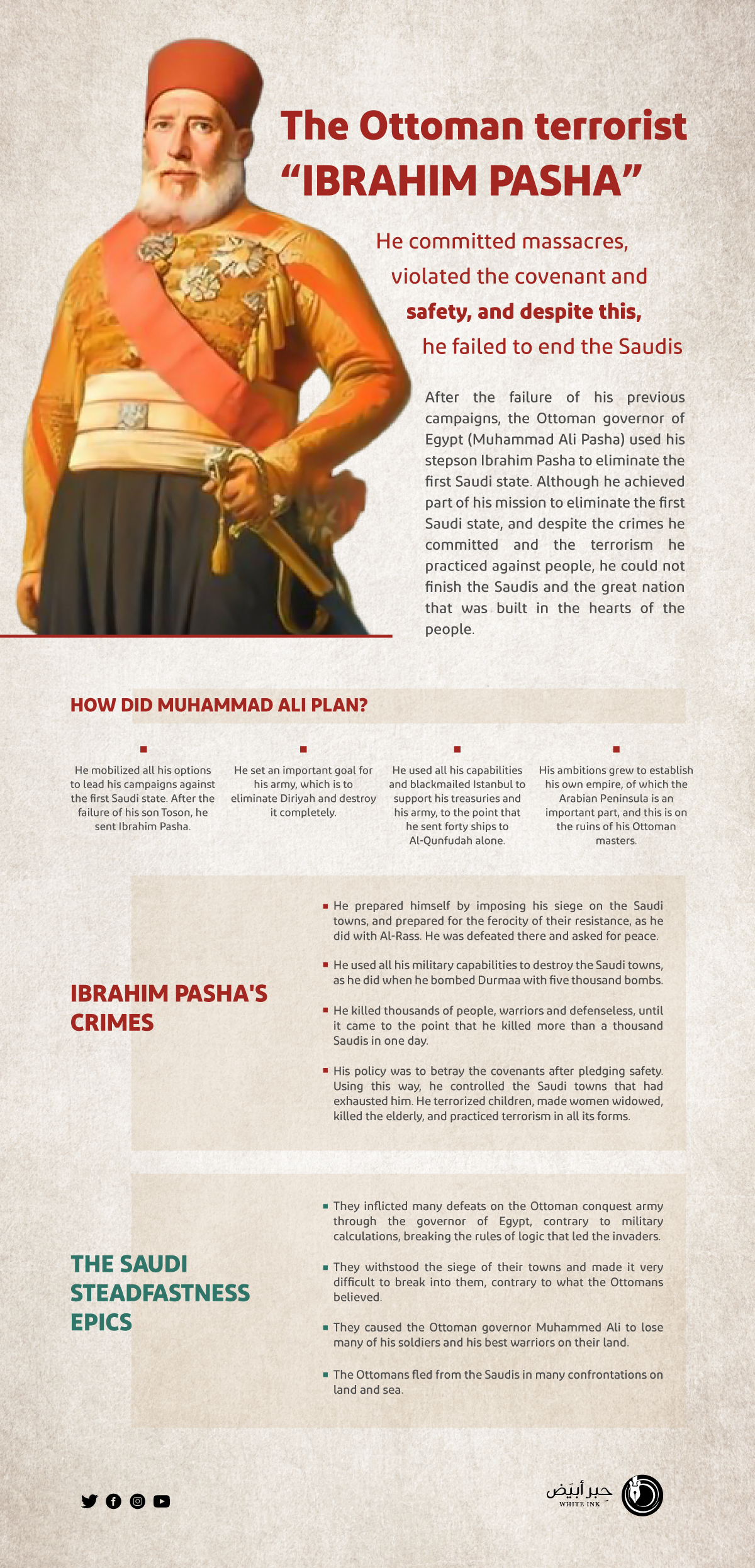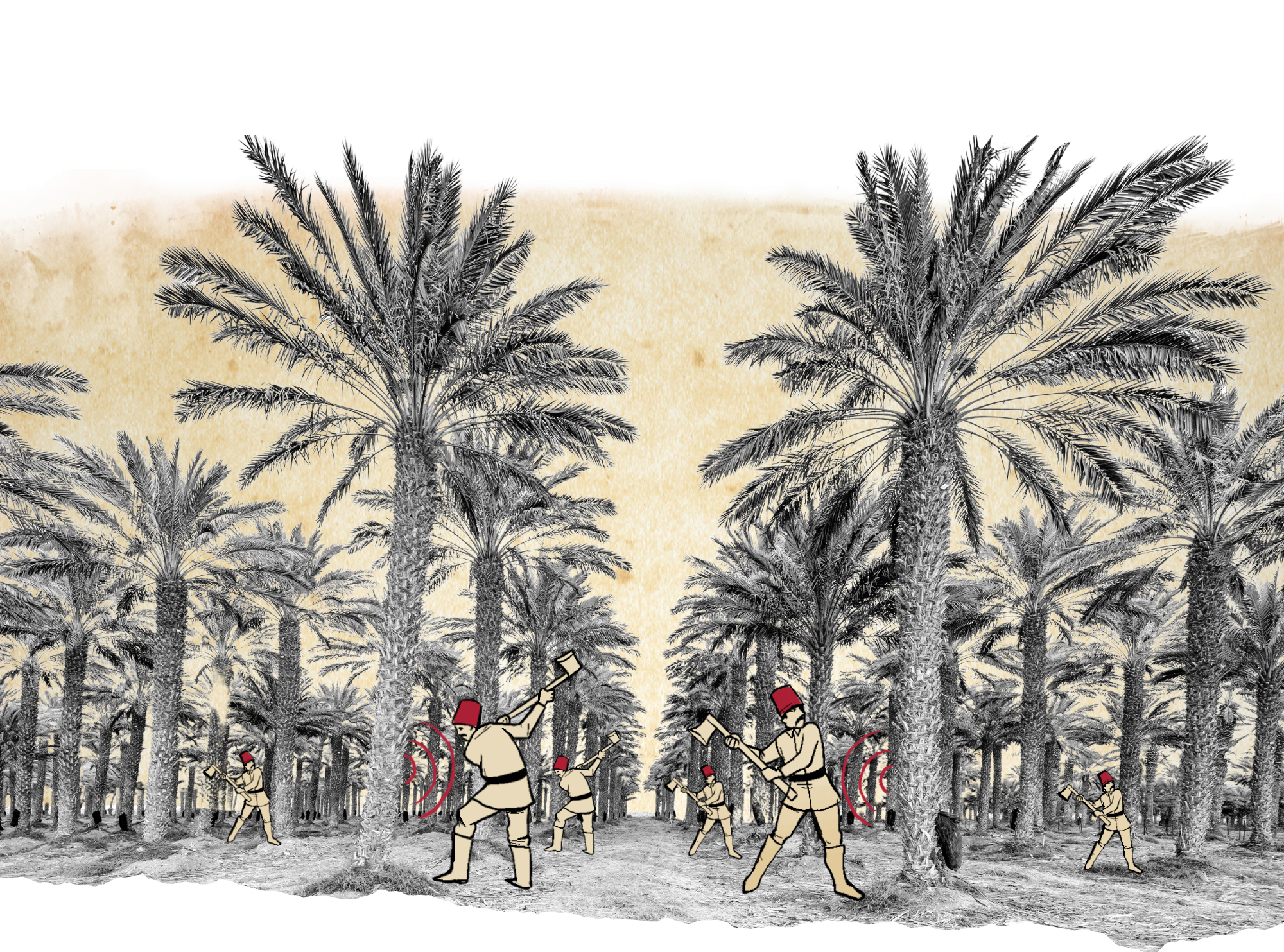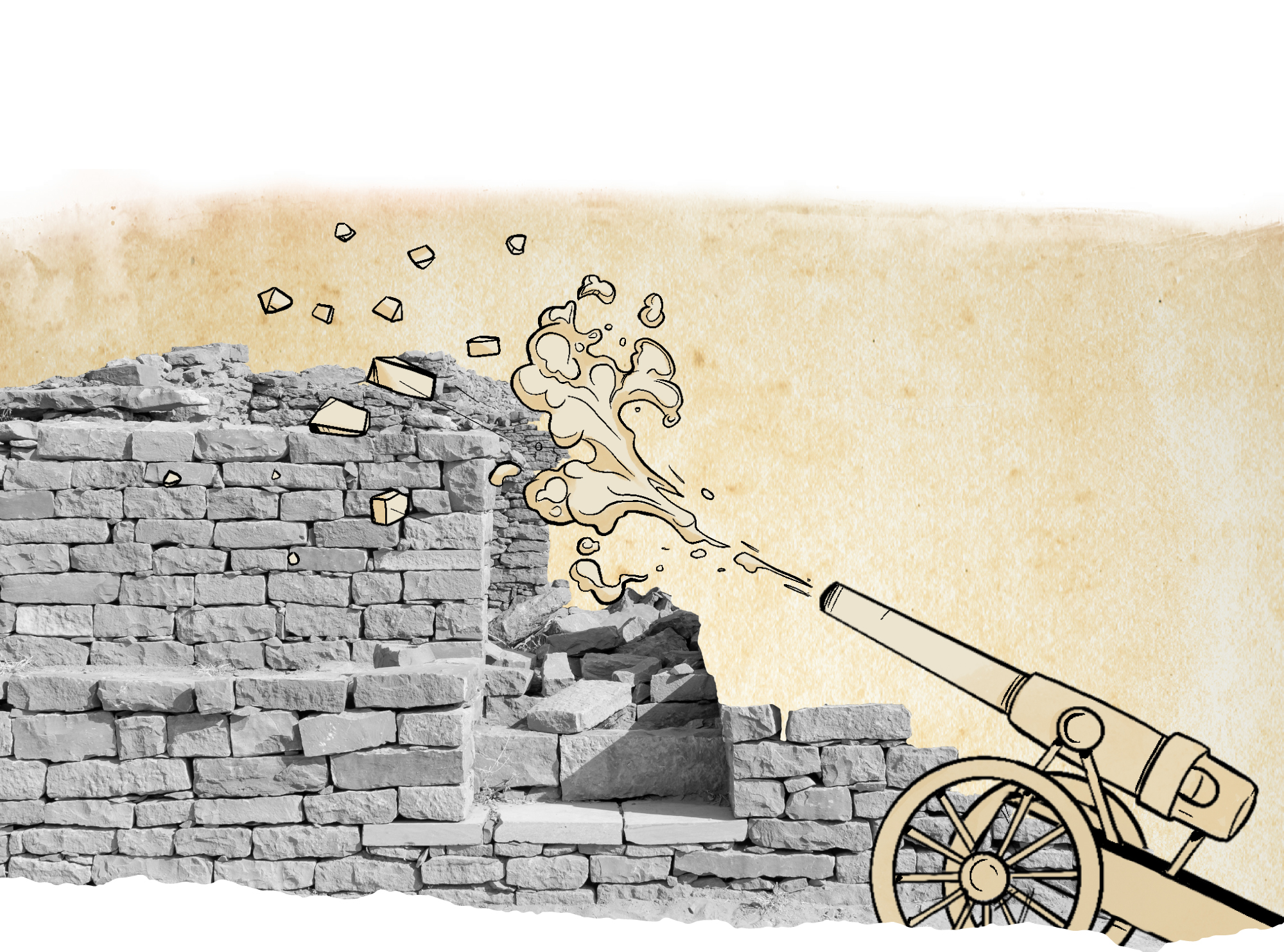
They surprised the Turks and forced them to flee
Al-Qunfudhah... The Saudi epic battle that vanquished the Ottoman arrogance
Historical sources unanimously agreed that the first Saudi state was able to stand up against and hold out the expansionist ambitions of the colonial Ottoman state, despite the huge differences in numbers and equipment, as the Saudis manage to engrave great epic battles that are still strongly remembered in history. This is the state that emerged from the borders of the emirate of Najd to become a state in no time; a state that shook the pillars of the empire that for centuries had imposed its oppressive rule and Turkish national authority.
As a complement to the historical narration of the battles fought by the forces of the first Saudi state with the invading Ottoman forces, we will address one of these epic battles with the logic of tactical analysis that led the Saudi forces to defeat one of the most powerful empires in the world thanks to the doctrine with which the Saudi armies fought, and which contributed to fight back the Turkish aggression on the region, including the Battle of Al- Qunfudhah in (1814), in which Muhammad Ali Pasha was defeated by the Saudis, who cost him significant material and human losses.
The Saudis used a strategy of surprise that shocked the soldiers of the Ottoman governor.

Al- Qunfudhah was an essential geo-strategic axis, being located on the Red Sea coast, and halfway between Makkah and the south of the Arabian Peninsula. It fulfills a set of conditions that tempt every military commander to subordinate it to his force; thus, the British historian Gerald de Gorey says about the importance of the Qunfudhah location to the Ottoman armies: “The location of Al- Qunfudhah seemed to be good for managing the battles, in coordination with the garrison in Taif, since the place could be easily supplied with supplies and men”.
It is worth pointing out that the forces of the Ottoman governor were initially able to subjugate the coastal city in a manner described by the Saudi historian Ibn Bishr, saying: “More than forty ships sailed on the sea (meaning Muhammad Ali), and they set up at Al- Qunfudhah and their soldiers on land, and there was a camp in Al-Qunfudhah from Asir, about five hundred fighters, and the Romans (meaning the Turks) surrounded them and fired them up with cannons and bombs, so they lured them out convincing them they will be safe, then they seized it”.
The fall of Qunfudhah was not due to the force of the soldiers of the Ottoman governor of Egypt, but rather because the Saudi commander in Asir and Tahama Tami bin Shuaib did not expect this attack by sea, as he was busy sending most of his soldiers towards Hijaz before he was informed of the news of the Turks’ seizure of Qunfudhah, to head back to it and with him more than eight thousand fighters, determined to take it back before the Turks settled and before the arrival of the military reinforcements ordered by Muhammad Ali Pasha. He saw in the subjugation of Qunfudhah a prelude to subjugating the entire south of the Arabian Peninsula and annexing it to his state.
The presence of Muhammad Ali’s forces in al- Qunfudhah continued for nearly a month before the vanguards of Tami bin Shuaib’s army arrived, which was able to advance through a number of paths and succeed in taking advantage of the impact of the surprise that gave them a strategic advantage that made the Ottoman armies in a shaky defensive position that made them lose the ability to regroup and to maintain their position in the city.
At this level, it can be said that the surprise factor was a key to resolving a set of historical battles, which made all strategic theorists confirm its importance, and here the British strategist Liddell Hart says: “The indirect attack is based on the idea of destroying the opponent’s balance using different methods, such as the surprise caused by a shock.”
The Turks fled to the ships, evading the boldness of the Saudi soldiers.

The impact of the surprise caused by the Saudi forces in Muhammad Ali’s forces can be observed by referring to Jyrald Dy Ghoury’s description of the state of panic in which the Turkish armies were in, saying: “They fled towards Medina and spread terrifyingly here and there without attempting any resistance… And due to the horror of the surprise, most of his soldiers ran into the sea towards the ships anchored in the port.”
The Battle of Al- Qunfudhah was an emphatic victory in which the Saudis demonstrated great cunning in the art of managing military operations through the speed of movement and detour. The discipline of the military elements, imbued with a high combat doctrine on lead, facilitated the controlling and linking process, and not leaking any information from their camp until they reached Qunfudhah, where they expelled the Ottoman enemy in a decisive battle about which Ibn Bishr said: “So he fought them and a fierce fight took place, so God aided Tami and those with him, defeated them and killed many men of them, and took the station and those in it…”.


- Othman bin Bishr, Title of glory in the history of Najd, achieved by: Abdul Rahman Al Sheikh, 4th ed (Riyadh: Ministry of Education, 1971).
- Jyrald Dy Ghoury, Rulers of Makkah (Cairo: Madbouly Library, 2000).
- Liddell Hart, Strategy and history in the world (Beirut: Dar Al-Taliaa, 1967).


The invaders sought to cut palm trees
Al-Rass... The Saudi town that blew up the Turks with their gunpowder
The forces of the Ottoman governor, Muhammad Ali, incurred great suffering at the beginning of their successive military campaigns against the first Saudi state, due to the rugged geographical environment in which the forces marched, in addition to the fact that the war was with the first Saudi state in which its people believed, so they resisted the occupation fiercely, not to mention that the people of the land know the nature of the geographical area on which the battles take place, and the invading Ottoman armies from Egypt were suffering – in addition to the strength of the state they were fighting against and its society – the difficulty of providing military supplies, provisions and equipment. Therefore, it was very difficult for Ahmed Toson bin Muhammad Ali, who led the vanguard of the Ottoman invaders against the first Saudi state.
As a result, the Ottoman governor, Muhammad Ali, realized that the war would not be easy, and that his son Ahmed Toson was not the ideal leader to lead this campaign. Hence, he pushed his (adopted) son Ibrahim Pasha, with many supplies, to lead Hijaz campaign.
Ibrahim Pasha’s plan did not change much; as the goal has always been to congregate in Medina and march from it through Qassim to Najd, which is the fastest way to reach the Saudi capital, Diriyah. Indeed, Ibrahim Pasha’s forces marched to Qassim, and he managed to overthrow some countries as he marches to Qassim, until he collided with the resistance of the town of Al-Rass, which refused to recognize Ibrahim Pasha’s authority, and continued to resist fiercely.
From what the historical sources provide, Ibrahim Pasha had to besiege Al-Rass and cut palms around it to force its people to surrender, but the people of Al-Rass continued to fight, so Ibrahim Pasha was forced to besiege Al-Rass for several months. Sources refer to a famous story related to the siege of Al-Rass and Ibrahim Pasha’s attempt to dig a tunnel under the wall and plant gunpowder within, so that he could demolish the wall and enter Al-Rass. when the people of Al-Rass discovered this, they prepared a counter plan by digging a tunnel parallel to the previous tunnel, then releasing a cat and setting fire to its tail in order to detonate the gunpowder in the other tunnel, and thus the fallen of all Ibrahim Pasha’s soldiers as a result.
Ibrahim Pasha continued the siege of Al-Rass for several months, during which he was unable to break the fierce resistance, yet no positive result was received, so he had only negotiations to end this complicated situation in which he found himself in front of the walls of Al-Rass, as the sources indicate that it was agreed to lift the siege on Al-Rass, it was also stipulated that Ibrahim Pasha’s forces should not enter Medina in order to preserve it Pillage and plunder.
Four months of siege, during which the people of Al-Rass make him lose his best warriors, according to the testimony of the Austrian Alois Moselle.

The new Ottoman governor was aware of the danger of the Saudi armies and maneuvered to avoid direct confrontation. He only instigated the call of Sheikh Muhammad bin Abdul Wahhab, and focused on quick wars on the adjacent internal lines between the Levant and the Saudi state, by launching some limited campaigns, taking advantage of the imams’ preoccupation with other fronts. Imam Saud bin Abdulaziz sent a message to King Yusuf Pasha, explaining the origins of the belief and the correct approach to call, and at the same time, a veiled warning against any attack on the borders of the Saudi state.
This confirms what happened to him in Al-Rass, which made him incur a great deal of his forces during the siege, which prompted him to seek reconciliation, although he is in fact aware that this confirms his defeat against this Saudi state, especially since its people were ready to resist more, which was not desired by Ibrahim while his soldiers losing their spirits, who were losing day after day a number of their forces, especially since the road to Diriyah is long, and if this was the resistance of one town, then this foretells an inevitable defeat if this continues.
Ibrahim Pasha sought to force the people to make peace so that he does not lose it all to Al-Rass.

Historical sources significantly focused on the battle of Al-Rass; because with its steadfastness it defeated the Ottoman forces and won a great victory over them, and over its leader Ibrahim Pasha, who could not enter Al-Rass, but lost hundreds of his soldiers. Therefore, the Austrian Alois Moselle (1868-1944) points out that what happened at the end of October in (1817) of a reconciliation between Al-Rass and Ibrahim Pasha’s forces is an acknowledgment by the Ottoman commander of the strong resistance he faced, describing him as saying: “He faced severe resistance that made him lose his best warriors.”. Therefore, peace is considered a defeat by all standards for the Ottomans in Al-Rass.


- Othman bin Bishr, Title of glory in the history of Najd, achieved by: Abdul Rahman Al Sheikh, 4th ed (Riyadh: Ministry of Education, 1971).
- Amin Saeed, State History Saudi Arabia (Beirut: Dar Al Kitab Al Arabi, without date).
- Alois Moselle, Al-Saud, Translation: Saeed Al-Saeed (Beirut: Arab Encyclopedia House, 2003).

They Breached Safety Pacts and Killed Defenseless People
The Crimes of Ottomans in the Eternal “Dhurma”
Ottoman governor in Egypt, Mohammed Ali, and his invading forces were not satisfied with overthrowing Hijaz during the era of the first Saudi state; rather, he decided to eliminate the Saudi state once and forever. In order to achieve this, he sent a campaign led by his son Ibrahim Pasha, after the failure of his son, Ahmed Toson. The new campaign came with more than eight thousand soldiers of different mercenary elements and nationalities. It also included some French officers, and a number of Italian doctors.
In their second campaign, regiments of invaders arrived in Hijaz in October (1816). Meanwhile, when Imam Abdullah Bin Saud Al- Saud (the last Imam of the first Saudi state) became aware of the news of the arrival of Ibrahim Pasha campaign and its movement to Najd, he gathered his forces and headed to repel the invaders. Before Ibrahim penetrated into Qassim, he had clashed with his forces in several military confrontations.
With the resistance shown by Saudis against Ottoman forces supported and connected to its supply lines, the way to the Saudi capital, Diriyah, was not as easy as Ibrahim Pasha and his army had thought. Saudi fronts were defending with full force and ferocity; such as, Unaizah, Al- Rass, Shaqra, and other countries. The first confrontation of those invading forces was in Al- Rass town which showed honorable steadfastness for nearly four months, during which the invading forces lost more than two thousand and four hundred killed persons. After neutralizing it by reconciliation, most of the cities in Qassim were toppled as Ibrahim Pasha headed to towards Al- Washm province.
Imam Abdullah bin Saud tactically retreated to Diriyah, in order to fortify and defend it. As for Ibrahim Pasha, he advanced to Shaqra on his way to Diriyah which he besieged and attacked its walls with cannons. This led to the demolition of some sides of the wall. This ended by making peace after he had cut half or more of its palms.
Saudi historian, Ibn Bishr, has mentioned in the history he wrote about Imam Abdullah that, “he ordered Saud Bin Abdullah Bin Mohammed Bin Saud along with several men of the people of Diriyah, in addition to others, he ordered everyone to march to Dhurma and enter it to give assistance and support to its people. Thus, they marched to it and entered it”.
Such an order from Imam shows that he sensed the situation seriousness after the topple of most of Al- Washm province and the importance of the town of Dhurma as the first line of defense of the capital of Diriyah which is located near to the foot of the western Jabal Tuwaiq. It is about sixty miles to the west far from Diriyah. Therefore, Imam Abdullah has sent military support to it. A French historian, Felix Mangan, indicated to this saying, “before Ibrahim Pasha headed to Diriyah, he thought that it was appropriate to seize Dhurma; in addition, he had received confirmations that he would find abundant supplies there”.
In addition, Saudi historian, Mohammed Al- Fakhri, said about Ibrahim Pasha in Dhurma, “then, he marched and went to Dhurma which he fought and plundered by force. Pasha killed some of its people in homes, roads, and mosques. It was said that he killed twelve hundred persons of its native people, as well as fifty of those who were not native. He plundered the whole town, then, he took women and offspring who were there to Diriyah. They were about three thousands or more.
It seems that the news was too bad for Fakhri that he could only say, “Praise be to Allah in everything”. On the other hand, we find that “Ibn Bashir” elaborated on describing what happened to the people of Dhurma with the barbarian invading Turkish army saying, “Then, when Pasha and Turkish soldiers arrived near the town of Dhurma, a number of horses were ridden about the town which was measured. They knew the place where they had settled along with their firebrands, cannons, and shells. Then, they went back to their camp. In the morning of the fourteenth of Rabiʽ Al-Thani, Pasha came to the country, and encamped to its east near the palaces of Al- Muzahmiyya between that place and the town. They settled their luggage and sat up their tents. After that, soldiers marched with firebrands, cannons, and shells. They took them to the north of the town near the wall. Thus, war erupted between Turks and its people. Pasha kept successively shooting them in an unequaled war. In addition, Allah gave bravery to the people of the town to withstand without caring about him. He asked them to reconcile but they refused and did not accept to be disgraced by him”. He added, “No town was stronger in those aspects, except for Diriyah, than this town in respect of men, money, number of people, and equipment, however, Allah does what he intends. Soldiers of Turks were mobilized against them, and they made a gap in the wall with firebrands and cannons but it was in vain. Then, they mobilized Turks as well; brought firebrands near the wall; and fought it in a great massive war. It was said to me that between the last Maghrib and Isha, there was five thousand and seven hundred shots including firebrands, cannons, and shells, thus, they demolished their near side of the wall”.
The Ottomans targeted Muhammad Ali by having him in stand-off with the Saudis to exhaust both parties, and devote themselves to whoever lasts.

Ibn Bishr continues saying, “then, Pasha pushed Turks against them but the people of the town remained withstanding there. After that, Turks attacked them in one campaign but they resisted them; sincerely fought them with swords; killed about five hundred men of them; made them retreat to their Pasha; and built some of the demolished parts of the wall. When Pasha saw their patience and sincere fighting, he ordered to prepare some firebrands and sent them to the south of the town. War, fighting and shooting were successive from Turks against the people of the town in the first place; as well as all the helping people of the town and those who took up positions opposite them at the destroyed wall in the face of firebrands and shells”.
Ibn Bishr went on describing such situation from which the town of Dhurma has suffered, as well as the injustice, abuse, assault, and excessive brutality that were perpetrated by Turks against them, and that was shameful to humanity, saying, “Turks entered the town from every side; took it over by force; and killed its people in markets, roads and homes. The people of the town had fought them with swords in the middle of the town until the sun rose. They killed many of the Turks but Turks deceived them by showing safety. It was said to me that they went to people at homes and to assembled gangs saying you are safe, then, they took their weapons; killed them; and plundered everything included in the town such as, money, goods, weapons, clothing, livestock, horses, etc.. Some men of the town and others fled to wilderness. People were either survivors or killed while the town was left empty of its people…”.
Saudis have withstood the cannons and bombs of Ottomans until they demolished the walls.

What was said by Ibn Bishr is approved by Felix Mangan, the French man, who pictured to us the tragic scene of Ottoman criminality that Dhurma and its people have lived saying, “the victorious Ibrahim Pasha, who was confronted by a resistance which he did not expect, ordered the soldiers to completely eliminate the people of the town. He commanded them not to let anyone alive. Soldiers immediately implemented the order of their commander. Once Turks, who were eager to pillage and plunder, defeated the last defenders of the town, they entered it and implemented the will of their commander quicker than they are when they are asked to attack. They assailed the people profusely shooting them; entered homes; and killed their people. They have accomplished this in less than two hours leaving only few hundreds of women and children whose lives were spared by the pity of soldiers. Those poor victims used to see in front of their eyes the bodies of their fathers, brothers, and husbands mingled with each other… Blood was flowing in the streets which were filled with the dead people. This was the punishment which Ibrahim Pasha inflicted on the people living in Dhurma who wanted to stand against him…”.
Looking at these scenes pictured by contemporary historians of the eternal Dhurma battle, one becomes aware of the meaning of withstanding and death defiance for the sake of homeland and its defense. He also becomes aware of the extent of malice and abjection showed by the invading Ottomans who lacked humanity axioms and mercy meanings.


- Brydges, A Brief History of Wahauby, translated by: Owaidah Al-Juhani (Riyadh: King Abdulaziz Foundation for Research and Archives, 2005).
- Khalifa Al- Masoud, The Attitude of Forces Opposing the Second Saudi State (Mawkif Al- Kowa Al- Moawi’a Min Al- Dawala Al- Saudia Al- Thanya) 1234- 1282 Ah/ 1818- 1866 Ah, historical documentary study (Riyadh: King Abdulaziz Foundation for Research and Archives, 2005).
- Abdulrihim Abdulrahman, The First Saudi State, 5th ed. (Cairo: University Book Center, 1987).
- Abdulfattah Abu Alya, Lectures on the History of the First Saudi State (Mohadarat Fi Tarikh Al- Dawla Al- Saudia Al- Oula) (Riyadh: Al- Marikh publishing house, 1991).
- Abdullah Al- Saleh Al- Othaimeen, The History of The Kingdom of Saudi Arabia, 12th ed. (Riyadh: Al-Obeikan Library, 2003).
- Othman Bin Bishr, The Title of Glory in the History of Najd, edited by: Abdulrahman A’l Al- Sheikh, 4th ed. (Riyadh: Ministry of Education, 1971).
- Felix Mangan, The History of the First Saudi State and the Campaigns of Muhammad Ali on the Arabian Peninsula, translated by: Mohammed Khair Al- Baka’e (Riyadh: King Abdulaziz Foundation for Research and Archives, 2002).
- Mohammed Bin Omar Al- Fakhri, The History of Al- Fakhri, edited by: Abdullah Al- Shibl (Riyadh: The General Secretariat for Celebrating 100th anniversary of the Saudi Kingdom Foundation, 1999).





